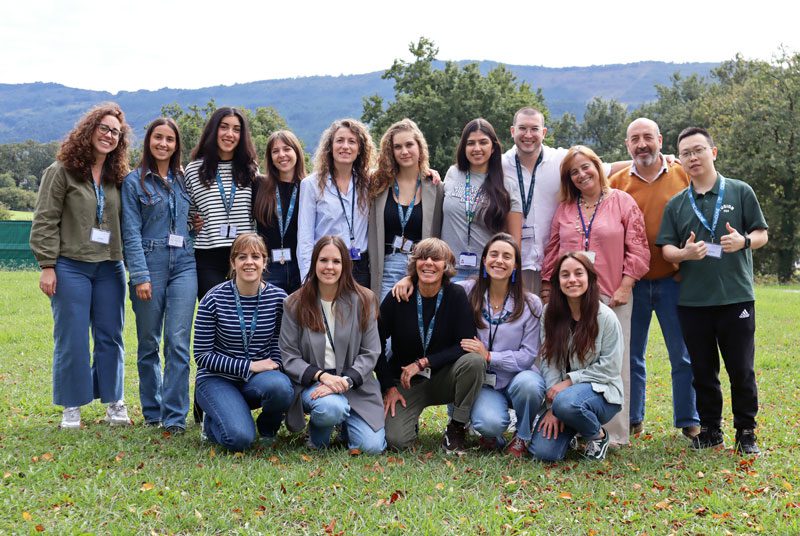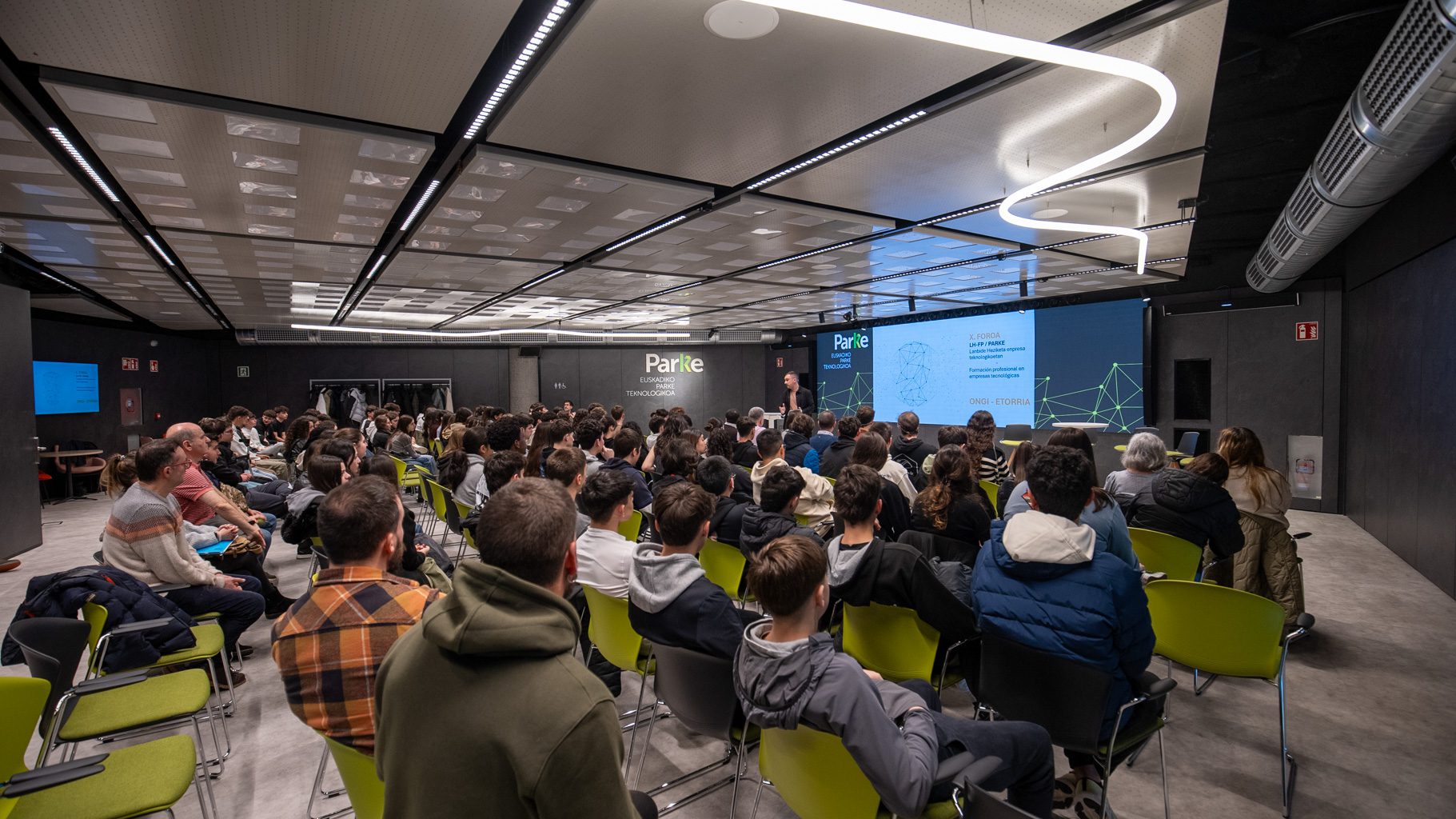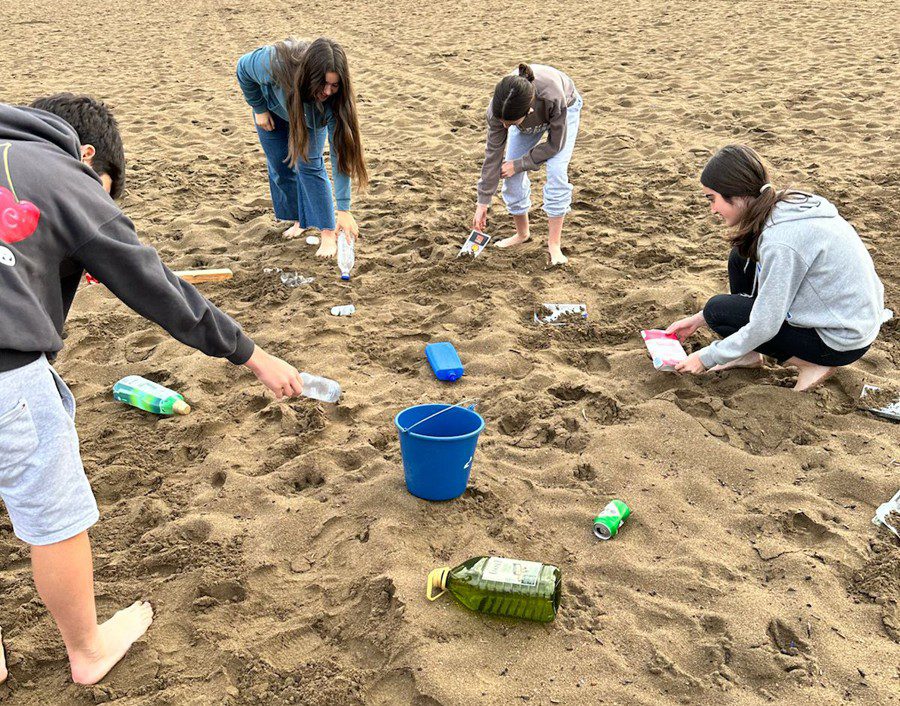Digital and green transformation improves supply chain efficiency, sustainability and competitiveness

The ninth edition of the Euskadi Logistics Day, organised by the Euskadi Mobility and Logistics Cluster in collaboration with the Empack, Logistics & Automotion Trade Fair, was held this morning.
The Cluster participates in the event with a stand from which it represents the capabilities of the sector. Its partners Igarle, JSV, Port of Bilbao and VPO Ingeniería are also present at the fair.
During the meeting, the role of the digital transformation of the sector to boost its competitiveness was highlighted.
This morning the ninth edition of the Euskadi Logistics Conference was held, a meeting organised by the Mobility and Logistics Cluster, in collaboration with the Logistics & Automation trade fair. The inauguration of the Conference took place at the same time as the opening of the Fair. Óscar Barranco, director for Spain and Portugal of Easyfairs, the company organising the exhibition event, highlighted its mission as a trade fair, which is not to talk about innovation for a few, but for the whole industry. In this sense, he thanked the Cluster for its work in favour of the logistics sector and the event. For his part, Eduardo Lasa, president of the Cluster, thanked the link with a Fair in which the purpose of the Conference is to contribute to the promotion of innovation in the sector, complementing the exhibition with the dissemination of expert and specialised technological knowledge.
Benefits of the Sustainable Mobility Law
The conferences began with a speech by Fran Manzano, CEO of the Igarle Group, who addressed the benefits of the Sustainable Mobility Law for carriers and shippers. Among them, he highlighted the synchronisation of supply chains through e-CMR and the digital consignment note. He also presented the Truck Friendly Movement, a movement whose purpose is to collaborate with the environmental, economic and social sustainability of the road freight transport sector.
Following him, different companies gave an overview of the main technological innovations applied to the sector, among which, driven by digitalisation, artificial intelligence, automation and voice management stand out.
Synchromodality, digitisation and artificial intelligence
In the field of digitalisation. Sener presented the European AirisSynchro project, a project to improve coordination between different means of transport, reducing times and emissions, streamlining operations and optimising costs.
Also based on the use of data from digitised environments, AR Racking and VPO Ingeniería presented their work on artificial intelligence and automated systems. Automation, they said, “is not an objective in itself, but to achieve an improvement that includes objectives such as cost reduction, efficiency, deadlines, quality, flexibility, agility, environmental improvement and sustainability”. From this starting point, they presented how they apply data and artificial intelligence for more efficient logistics management, and how they use them in warehousing and picking systems.
Monitoring, voice management and loss reduction
The second block of the morning was opened by Tecnalia. The technology centre is also using Artificial Intelligence in small embedded devices based on microcontrollers. A modern car, they said, can carry between 20 and 40 microcontrollers, which means that there are currently around 250 billion microcontrollers in use. Tecnalia presented cases in which it is applying these techniques and, specifically, highlighted their usefulness in reducing emissions in the transport of refrigerated goods and in decarbonising transport infrastructures, in particular bridges and railways.
After the speeches on digitisation and artificial intelligence, JSV addressed voice-activated asset management. It is now possible to perform all kinds of functions using voice technology, freeing eyes and hands to perform tasks with more agility and comfort, increasing efficiency and improving times. Voice-guided technology is becoming a differentiating factor in warehouse and logistics processes, as well as for inspection.
For its part, ClCircular presented a real-time monitoring service to know where and how the goods are during transport in order to prevent losses. A solution that combines the Internet of Things and a cloud platform, with a circular economy model.
The presentation of the Tek4log project closed the speeches. The aim of this project is to analyse the viability and opportunities of disruptive technologies in the logistics sector. The speech was given by the Mobility and Logistics Cluster of the Basque Country. Thus, the conference concluded with an emphasis on the promotion of digital and ecological transformation to improve the efficiency, sustainability and competitiveness of the supply chain.
The Cluster at Empack, Logistics & Automation
In addition to holding its Logistics Day within the framework of the fair, the Cluster is present in the exhibition pavilion with a stand from which it represents the capabilities and strengths of its associates. This morning, the Basque Government’s Department of Transport also took part in the stand, which for a few hours attended to visitors to inform them about the aids for the modernisation of the sector, which are currently in force. Along with the Cluster, the partners Igarle, JSV, Port of Bilbao and VPO Ingeniería are also exhibiting at the fair.




